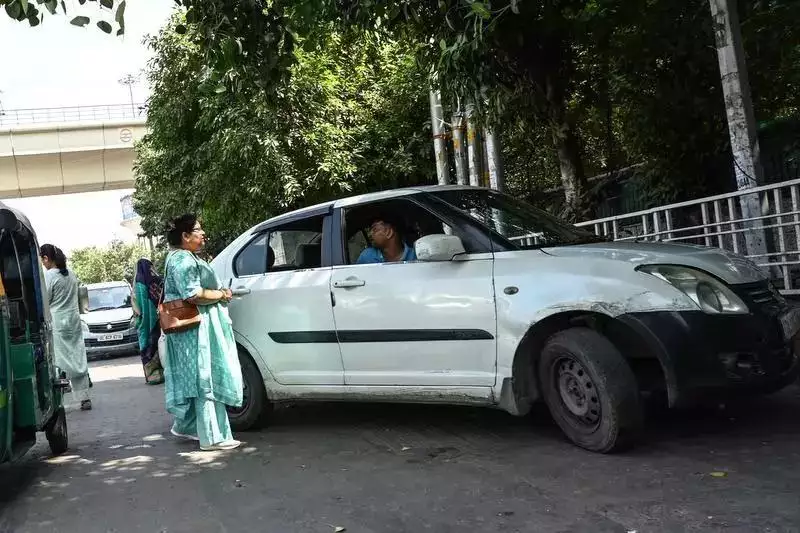 Despite their affordability, these shared cabs carry significant risks.
Despite their affordability, these shared cabs carry significant risks.The city’s inadequate public transport has forced residents to rely on unregulated shared cabs, particularly in areas like sectors 16 and 37, Pari Chowk and Botanical Garden mostly to travel to Delhi.
Outside Sector 16 metro station, commercial and private cars queue up each day to ferry commuters to Delhi on a sharing basis. “We charge Rs 30 for Maharani Bagh and Rs 40 for Lajpat Nagar. Since the public transport is poor, these cabs fill the gap,” Monu Kumar, a shared taxi driver, said.
Himanshu Kumar, who takes a shared cab to Delhi’s Maharani Bagh regularly said: “I have to wait for 15 minutes or more if I want to take a bus to Delhi. If I book a cab, it will charge me at least Rs 300. So, I prefer to take a shared cab, which costs 10 times less than a personal cab.”
Md Rashid, a law student from a private college in Knowledge Park, echoed similar sentiments while waiting for public transport at the Botanical Garden.
“There is no city bus service in Noida. Also, the Aqua Line metro connects to Sector 51, and this is not a viable option for me. In this situation, I prefer shared cabs as it costs me Rs 50 compared to an app-based cab, which will charge anywhere between Rs 400-500,” he said.
Sector 37 resident Gaurav Singh, who commutes to Jaitpur in Delhi for work, said he too was dependent on shared autos and cabs as there were no buses for Delhi.
Despite their affordability, these shared cabs carry significant risks. Udit Narayan Pandey, ARTO (enforcement) urged people not to take unregistered shared cabs, especially post sundown. “A private car can’t ferry commuters as a commercial cab. There is a provision of Rs 10,000 fine if caught for this violation. People should also book the cabs through a valid platform and then travel. We will conduct drives and issue fines against such vehicles,” he added.
Noida Authority CEO Lokesh M said 100 electric buses under the PM-eBus Sewa Scheme will be rolled out soon to improve intracity connectivity. The central govt will provide subsidies to support these operations. “We hope to launch 50 e-buses in the first phase by March 2025,” he said.
